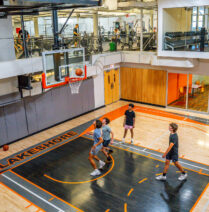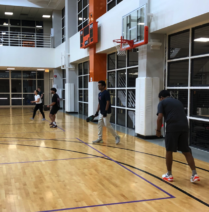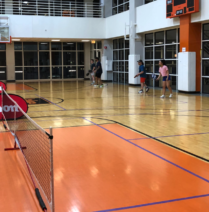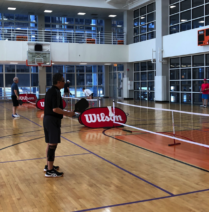
Within the tennis world, there’s a shared sentiment that who you are as a person is expressed in how you play. Within the boundaries of a tennis court, the technical demands of the sport and the stress of individual competition have a way of flushing out a person’s instinctual way of being.
Your Play Style Is Determined by Your Personality
How do you handle a pressure point? Under pressure, do you gravitate towards defense or offense? What’s your game style, do you enjoy grinding out points? Defend first? Attack before the opponent attacks? Do you play based on feel and instincts, or are you methodical and calculated? — From a sports psychologist’s view, a deep dive into these types of questions can provide meaningful insight into a player’s core personality. The answers can point to positions that a player would have adopted instinctually or without conscious thought. As players develop, their approach to the game becomes guided by coaching and tactical proficiency, but the initial drives towards things like style of play speaks directly to how the athlete is wired.
Understanding the connection between your mental systems and how you react and behave on court, can set the stage for seeing tennis as a medium for personal insight and mental development.
Consider the following example taken from lessons with a recreational junior player. After a few weeks of lessons, it became clear that the student was unwilling or unable to choose any part of the lesson, despite strong encouragement from the instructor. When finally asked about this amusing feature, the student simply stated that if they choose an activity to do and it ended up not being fun, then they would have no one to blame but themselves. So then, by foregoing the burden of choice, they would able to avoid the pain making a “bad” choice. A few lessons later this topic was brought up again with the same result, and this time the student explained that they “hate making choices.”
Tennis and Mental Training
This insight opens the door to two modes of mental development. From a tennis standpoint, a winning player needs to be able to effectively make rapid and decisive choices throughout the match. Developing the player’s ability to sustain concentration, increasing their self-belief, and helping them learn how to regulate their emotions would serve to boost their on-court performance with regards to decision making.
Outside of tennis and sport though, learning how to skillfully work with the emotions surrounding choice and uncertainty is fundamental to being able to thrive as an adult in this world. The psychological processes involved when training the mind for tennis are exactly the same as what occurs off-court, and it’s in this way that sport can provide an approachable platform for training the mind.
Confronting ourselves and the reality of our minds is a task that can deeply overwhelm most of us, and as a result we never develop the ability to work with our own minds. Tennis, and athletics in general, provides a type of training ground for life. The tennis court is a simulator that allows athletes to play out the mental struggles of life within the safe and understandable rules of a tennis match. With a racquet as their sword, tennis players can learn to conquer and befriend parts of themselves that otherwise would be too abstract and alien to engage with.
In the past few decades, it’s become clear that mental training can do wonders for athletic performance. Research across a range of sports has demonstrated sport psychology’s ability to improve performance orientated traits like focus, motivation, resilience, stress management, and self-belief. But in a way, those are periphery gains that sit atop a deeper growth that occurs when players stretch themselves beyond their current mental limits. When done right, mental training provides a framework in which athletes can become better performers in sports and in life.
Want to get more involved in tennis at Lakeshore Sport & Fitness-Lincoln Park? Discover all the lessons we offer as well as details about open court time and matchplay opportunities.
Written by David Canovas, MSc
Tags: chicago racquet sports, mental training, sport, sports psychology, Tennis



